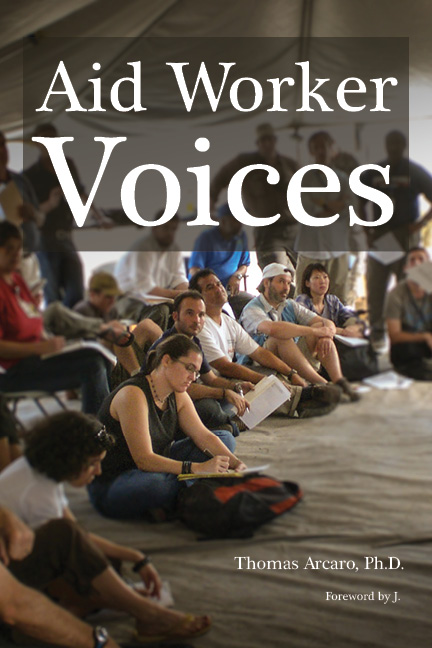 Aid Worker Voices, the book, coming VERY soon
Aid Worker Voices, the book, coming VERY soon
Proof copies coming tomorrow, then -hopefully- the public release of Aid Worker Voices! I will put ordering information here on the blog in the next day or so. In the meantime….
Another side of aid work
Last Friday I spent the day helping a colleague work on a documentary about refugee families who are being assisted by a big box NGO here in central North Carolina. We visited a community garden in its first year of being planted and tended by locally settled refugees from DRC, Burma, Cambodia and beyond. The vegetables, being cultivated in a field once dominated by kudzu, included corn, peppers, egg plant, okra, beans and other staple foods enough to sustain many families. The land is owned by the NGO and will soon have a proper fence, access to water, power, a tool storage facility, and cleared space for community gatherings. That is to say, this appears to be a sustainable enterprise with deep, long lasting impact potential.
We also visited a small apartment complex where we interviewed a refugee from Burma. Through an interpreter he told the story of his family and their desire to live free of violence and fear. Their move to the US was not quick or smooth, but now they are in a setting “with human rights” and “democracy.” There were tears during the interview born of bad memories and new hope. My colleague, a refugee himself from Iraq, handled the interview with deep sensitivity. He had been there himself. 
I talked with the aid worker in charge of helping to resettle the constant influx of refugees to this area of central North Carolina and told her about Aid Worker Voices -both the blog and the book.
We had a quick, spirited discussion about the aid world, reviewing current events in South Sudan, Syria, Iraq and elsewhere. The chance to talk with a someone who shared a common knowledge of the humanitarian aid and development industry was great for both of us. In the end we repeated the truism that ‘it is all interconnected’, that her work in this small town in North Carolina was just one part of the global efforts of her NGO to deliver aid and assistance to beneficiaries.
Her voice as a local aid worker is important and hers -and others like hers- need to be heard more broadly.


 Follow
Follow